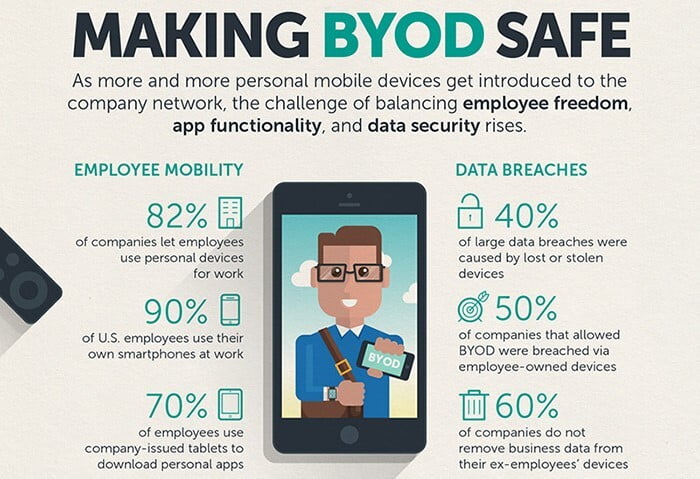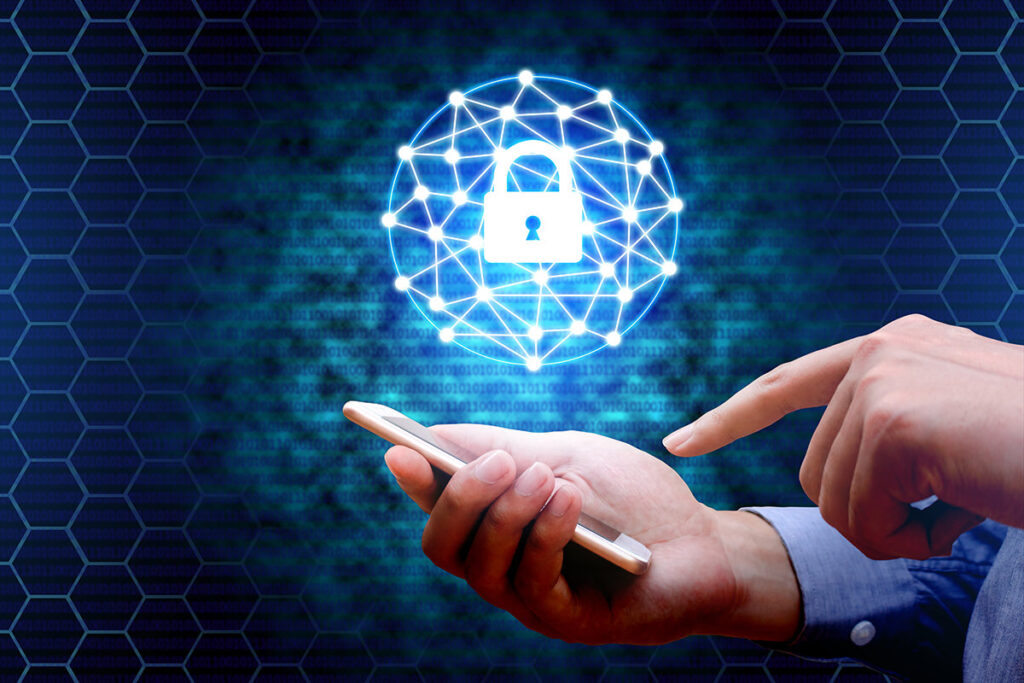Mobile security has never been more vital to the success of a business than it is today. Most companies are leveraging mobile technology to streamline their operations, increase employee productivity, and ultimately cut costs.
In today’s office environment, you’ll notice that every employee has a smartphone or smart device, such as iPads and other Android devices. Most companies have underutilized these devices because the employees own them personally. They fail to understand that they can take advantage of employees’ tech-savviness and use it as a tool to improve staff productivity. They [employees] are always glued to their mobile devices, and you can create measures to ensure that your workforce is being productive by deploying effective mobile security protocols.
The bring-your-own-device strategy is gradually gaining ground. A significant fraction of savvy entrepreneurs and business are electing to allow employees to use their mobile devices at work. According to Forbes, 61% of millennials and 30% of employees over 30+ years expressed their preference for using personal devices at work. They said they were comfortable with the tech they use in their personal lives, making them more productive
Companies that haven’t yet integrated BYOD strategies might be spending more on operational costs than their competitors who let staff use their personal devices. Cisco’s report indicated that companies that favor BYOD save on costs per employee, about $350, and the savings could reach up to $1,300 in some robust programs.
Should You Consider Creating Policies that Promote Personal Mobile Devices at Work?

Privacy and data protection are matters of concern when implementing a BYOD system. That’s the main reason why most businesses are reluctant to let employees use their devices to access sensitive company data. That’s why corporations often choose to handout smartphones and tablets to employees which allows them to monitor usage and apply mobile security protocols. The problem is that SMBs cannot afford to issue smart devices to staff.
So, how can you safely deploy BYOD strategies without risking data loss, and at the same time, ensure efficiency and high productivity in the workplace?
Protect Sensitive Data
If your business deals with sensitive data, it would be best to protect it at all costs. Because hackers have found new ways of breaching data using smartphones, you can imagine how vulnerable your company’s data is with a BYOD system.
Suppose the information involves sensitive data, such as the company’s user accounts or financial reports. In that case, it will help to consider data protection that limits employee access using multi-factor authentication and encryption.
Sync Cloud Data to Smart Devices
Most cloud software providers offer data synchronization solutions that allow you to access critical business information through smartphones, laptops, tablets, pads, and desktops. The ability to access this data from their mobile devices, wherever they are allows employees to work more effectively. Employees use different mobile operating systems and having the information available for iOS, Android, and Windows phones keeps the staff connected at all times. Apart from that, businesses can use the following tactics to ensure critical data is protected in a BYOD environment:
- Have a BYOD policy that features a mobile device management (MDM) and identity access management (IAM) systems. That way, you can give access to specific devices and authenticate an employee’s identity trying to access the data.
- Today, companies allow messaging of company information over collaboration platforms and social media sites, such as Facebook and Twitter. That makes it challenging for companies to implement their information management policies effectively. In such circumstances, having strong application-control strategies blocks staff from using Facebook, Skype video, and iMessenger.
- Instruct employees to use a VPN when connecting to the company network using their personal devices. A VPN provides an extra layer of security and encryption. Some VPNs even have built in malware blockers.
Gain Control of the BYOD Strategy
Creating and implementing BYOD policies comes with its unique challenges. Companies are always on a constant pursuit to balance privacy and data security. That is to ensure that employees can access corporate data while keeping tabs on the information and risks involved. Not only that; you also need to gain control of staff synchronizations and information sharing. For example, you might decide to sync the data to employees’ smartphones and not their desktops. As time goes by, you can review the policies, depending on the circumstances.
Conclusion
The ongoing global pandemic is forcing most businesses to adopt a work from home arrangement. Which makes it an excellent time for companies to create BYOD policies to ensure that staff get the specific data they require to get their job done. Companies must still deploy data protection, privacy policies, and mobile security protocols to ensure that the company information is safeguarded from breaches and unauthorized access.





